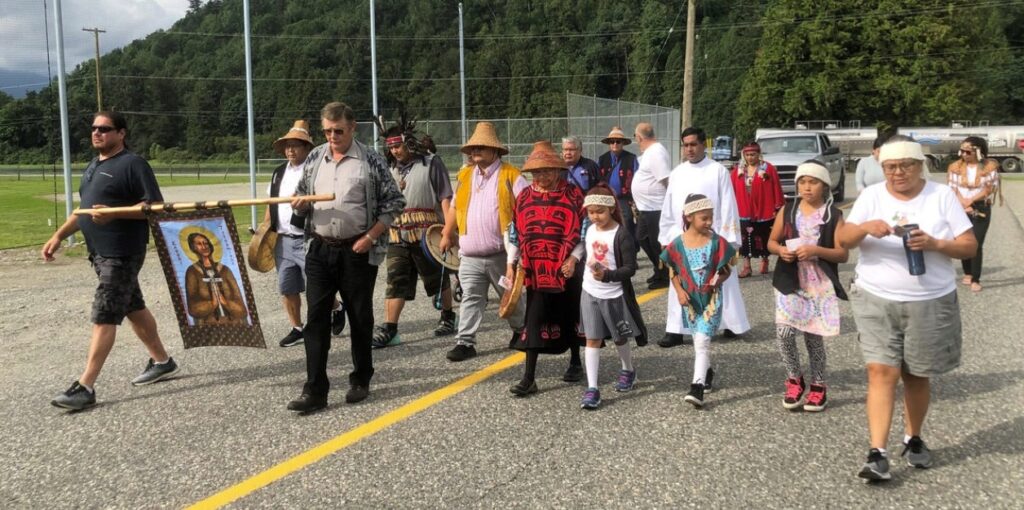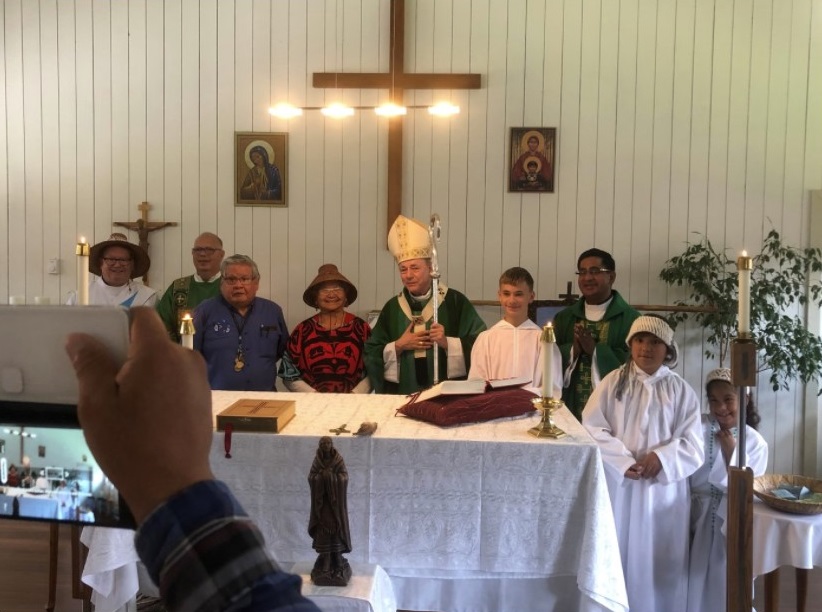AGASSIZ (CANADA)
B. C. Catholic [Archdiocese of Vancouver, British Columbia]
June 29, 2021
By Jamie Meskas
To contribute to a dialogue of healing and understanding following the Kamloops Indian Residential School announcement, The B.C. Catholic is sharing stories of individuals who have been working toward truth and reconciliation. We are publishing first-person accounts as well as interviews over a few weeks.
The news coming out of Kamloops has been very deflating for me. As a permanent deacon I have worked very hard in the communities I serve – Sts’ ailes and Seabird Island – to promote the Church where First Nations people have distanced themselves from the Church.
It’s been difficult for me to encourage them to give the Church another chance. There are difficult questions, such as why the Church would be involved in such a thing, and how priests and nuns abused people while representing the Church. No one is here to help me answer those questions.
COVID has been tough on the ministry, and now there’s this. I’m frustrated the Pope won’t at least apologize. I can’t think of any reason to say “no,” other than financial. I became a deacon because I believe in this Church and our Lord. When I heard the Pope say we shouldn’t act like a corporation, that we need to be with the sheep and should smell like them, I did that. It doesn’t make sense that the Church would stay silent when people are in pain.
To say the local bishop should apologize is a cop-out. People want the Pope to do it. Is that so difficult?
I believe in living out the Gospel in my life by being a servant. No one else should think they are more special than anyone else, especially priests, bishops, or popes. If we cannot receive criticism, how are we ever going to get past this?
Reconciliation is where two parties wish to repair a relationship that has been damaged or fractured. In the case between the Church and First Nations communities, the trust has been severely broken.
First Nations people had no choice in accepting Church; it was forced on them by placing them in schools. When they encountered people representing the Church, they were victimized by those people. Colonialism has also created a lot of mistrust and resentment.

Reconciliation needs to be a two-prong effort.
First, the Church needs to show them we believe in what Christ said in the Gospel: that we came to serve, not to take advantage of people. We need to show them that the people who represent the Church see themselves as equal, not a superior, and be willing to walk with them in their pain. Don’t tell them it wasn’t that bad.
We need to show them we are serious about their wellbeing and try to help them heal from the childhood trauma they experienced with a concerted effort on counselling to help them from all the abuses they suffered such as sexual, physical, etc. The effects of these are alcoholism, sexual abuse, and drug abuse.

Then we need to welcome them to the Church by providing an example of how different the Church is today and explain why the Church chose to be involved in residential schools in the first place. The churches on reserves need to live out the Gospel as authentically as possible. Jesus has placed us with them to love them, not to be successful.
The second prong has to come from the provincial and federal governments, by starting to enter into discussions about how to resolve land issues. How can we help them build infrastructure and their own industries?
I work toward these dreams everyday.
Deacon Jamie Meskas is a permanent deacon ordained for the Archdiocese of Vancouver. Five years ago he and his wife sold their home to live with and serve Sts’ailes and Seabird Island communities in the Agassiz area.

